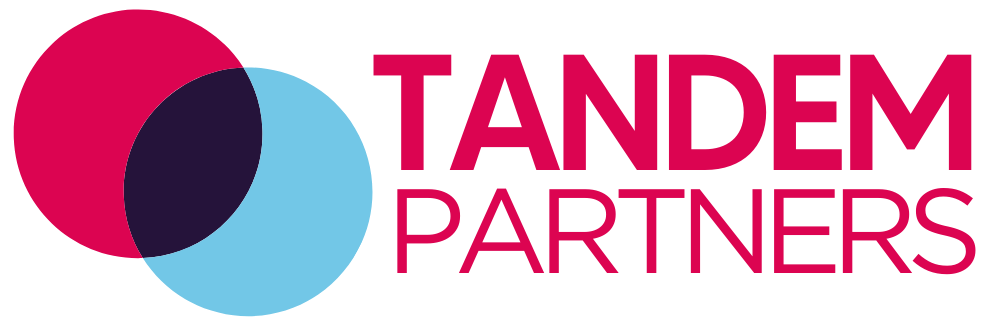Tips for Perfecting an HR Resume
News

You’ll see and hear a tonne of advice on how to craft a resume, what to include, how to present the resume, how many pages it should and shouldn’t be. You’ll even hear that resumes are on the way out and you’ll no doubt receive a different view depending on who you speak to.
You’ll find plenty of advice online as to how to write a resume, so let’s not cover old ground, but consider these
Tandem tips when writing an HR specific resume that has impact and cut through.
Style and Format
- Your resume does need to look smart and visually appealing, however a Hiring
Manager or recruiters’ real interest will be in the content and substance documented.
- On style, our advice is to pick a simple, non-cluttered, contemporary resume
template – there are literally hundreds via Google.
- There is no need for an abundance of personal information but do add in your
personal contact details and LI profile hyperlink. Ensure the personal email address
you use is appropriate. If you haven’t an email that best reflects the corporate you, it
might be worth setting one up for the purpose of job searching.
- Photos on resumes are not necessary but make sure your LinkedIn is the best version of you!
Style and Format
- Length - As a guide 2-4 pages but substance is king. If you are somewhat progressed in your career, it will pay to review those early career roles (particularly if there are a few) and what relevance they have. Summaries them, weight them or lose them, whatever makes sense in the context of the front end of your resume because that is where a Hiring Manager will spend more time. How to know when to drop a role? Consider – did you work for a great brand early in your career –that might carry some weight. Did you work in the business, hold an early Team Leadership role – think about the relevance of keeping early roles in or out.
- If you have had multiple roles, make sure your journey is easy to follow. If there are gaps or reasons for leaving roles you feel comfortable explaining, explain them briefly.
- Role titles – be accurate and be honest. Plenty of people try to 'market normalize' their titles, but, in HR, titles are not used interchangeably in any case. If you are an HR Manager, don’t change the title to HR Business Partner for example, but talk to your partnering approach in the content, if you can back it up.
- Organizations – don’t assume everyone knows what the organization you work for does. On your resume, always write a brief couple of sentences covering industry, scale, size, listed/private, revenue – whatever paints an accurate picture.
- Work for a big corporate? Let's say you work for Woolworths or Telstra as an example - do you work across the enterprise or with a specific part of the organization? Be specific.
- Always sort your experience into responsibilities and achievements. What were you hired to do? What did you do and what are you proud of? How do you quantify your achievements, how can you demonstrate the success you had in your role? Add a bit of color and context – what was the organization going through at the time? Steady state (*doubtful!) or transforming to a digital marketplace? Downsizing? What did this context allow you to achieve?
Key Competencies
- Let’s move away from HR clichés and get a little more focused on demonstrating a handful of HR competencies. There are a few, but the ones that stand out right now are: change management, risk and crisis management, commercial acumen, innovation, technology and data interpretation. Does your resume speak to these at all and how would you demonstrate adherence to these competencies at interview?
- Likewise, the skills and strengths you bring to a role are critical. Although you don’t need to list your skills – give some brief context. If you have “negotiated multiple EBAs” maybe you “negotiated EBAs that allowed XYZ changes for the business. If you bring strengths in the development/implementation of talent frameworks, of what benefit have these been to the business? Your resume is not a list, think of it as an impact statement.
- In HR, it is very common for candidates to focus on relationship building as a success or achievement. Whilst in all reality this might be the case, you are going to need to dig a bit deeper. Given that you built a key stakeholder relationship through the delivery of ABC, this allowed you to present a business case, solving for XYZ
Impact
- Differentiate yourself through your achievements. You must expect that to a certain extent, all HR generalists, or HR Business Partners for example, have for the purposes of a resume, very similar responsibilities. So what have you contributed to, led, achieved that stands you out from the rest? It could be a situation or matter/s that you have solved for or a project you have led to outcome. Whether micro or macro, be clear as to the why, what and outcome.
- PROOFREAD EVERYTHING!
Credibility
- Does your resume line up with your online profile? Both represent the personal brand you are trying to reflect. Your LinkedIn profile shouldn’t be an online version of your resume, of course, but it is an abridged version of the same, so keep that career history consistent in both forms of media.
I hope these tips help you navigate this challenging market and ensure you’re in the best position to secure the right permanent of contract role. For more advice on HR contracting or to find out about the opportunities we currently have available, feel free to reach out.
Refine results
Keywords
Contact Us
Categories
News
HR Leader Series


